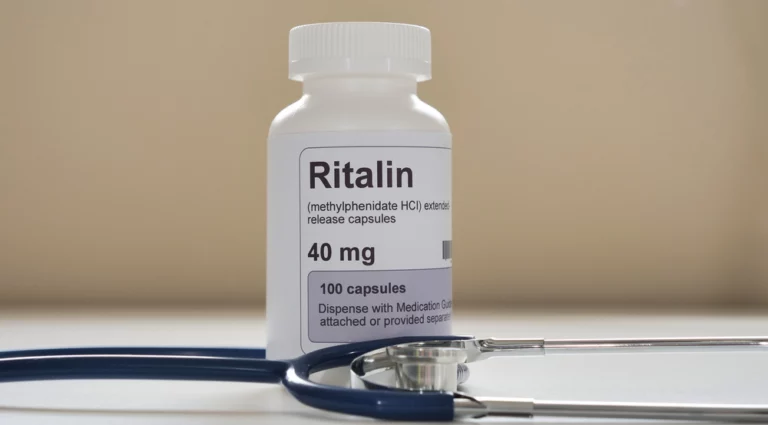Embarking on the journey to sobriety is a deeply personal experience that requires resilience, dedication, and self-awareness. One essential element for successful addiction recovery is self advocacy: the act of asserting and communicating your personal needs and preferences throughout the recovery process.
By putting your needs first, individuals can foster a positive and personalized path to recovery, enhancing overall success and personal growth. Let’s explore the concept of self advocacy in addiction recovery while offering insights and strategies to empower individuals on their journey.

Understanding Self Advocacy in Addiction Recovery
Self advocacy serves as a cornerstone in the process of reclaiming your life from addiction. By understanding this concept, individuals can better navigate their recovery journey.
What Is Self Advocacy?
Self advocacy is a critical skill that involves a deep understanding of your own needs, strengths, and challenges, as well as the ability to effectively communicate these to others in a way that ensures your voice is heard and respected. In the context of addiction recovery, self advocacy takes on an even greater significance, as it empowers individuals to take an active and intentional role in shaping their journey toward sobriety. This means not only recognizing what you need to heal and thrive but also being proactive in seeking out and utilizing the resources, support systems, and treatment options that align with your personal goals and values.
In addiction recovery, self advocacy might involve making informed decisions about the type of treatment that works best for you, whether that’s inpatient or outpatient programs, therapy modalities like cognitive-behavioral therapy (CBT) or dialectical behavior therapy (DBT), or holistic approaches such as mindfulness practices or art therapy.
It also means being able to communicate your preferences and boundaries to healthcare providers, therapists, and support groups, ensuring that your treatment plan is tailored to your unique circumstances. For example, if a particular approach or medication isn’t working for you, self advocacy allows you to speak up and explore alternatives without feeling silenced or dismissed.
Beyond treatment, self advocacy extends to the broader aspects of your life that contribute to your recovery. This includes building a support network of family, friends, or peers who understand and respect your journey, as well as making lifestyle choices that foster a healthy and sober environment. It might mean setting boundaries with people or situations that could trigger a relapse, advocating for accommodations at work or school to support your recovery, or even seeking out community resources like sober living homes or recovery-focused organizations.
Self advocacy also involves a level of self-awareness and reflection. It requires you to regularly assess your progress, identify areas where you may need additional support, and take steps to address those needs. This could mean attending support group meetings, seeking out a sponsor, or engaging in ongoing therapy to address underlying issues such as trauma or mental health challenges. By being your own advocate, you ensure that your recovery path is not only sustainable but also deeply personal and aligned with your long-term goals.
Ultimately, self advocacy in addiction recovery is about reclaiming your autonomy and agency. It’s about recognizing that you are the expert on your own life and that your voice matters in every decision that affects your well-being. By embracing this mindset, you not only take control of your recovery but also build the confidence and resilience needed to navigate the challenges that may arise along the way. In doing so, you create a foundation for lasting sobriety and a life that reflects your true values and aspirations.

The Importance of Putting Your Needs First
Prioritizing your needs is vital for sustained recovery. When individuals advocate for what they need—whether that means speaking up in therapy sessions, choosing the right support groups, or setting boundaries—they create an environment where healing is most likely to occur. Assertiveness empowers individuals to tailor their treatment and recovery journeys, thus increasing the likelihood of long-term sobriety.
Benefits of Self Advocacy in Recovery
There are numerous benefits to embracing self advocacy during addiction recovery, many of which directly contribute to personal empowerment and success in treatment.
Enhanced Personal Empowerment
Taking charge of your recovery journey through self advocacy leads to greater personal empowerment. When you are in control of your decisions and your treatment, you’re more engaged and committed to the process. This sense of ownership can be pivotal in building confidence and reinforcing your resolve to stay sober.
Improved Communication and Relationships
Learning to advocate for yourself often improves your communication skills, enhancing relationships with healthcare providers, family, and friends. Clear communication fosters trust and understanding, enabling others to support you more effectively.
Customized Recovery Plans
By advocating for your needs, you can work with healthcare providers to design customized treatment plans that address your specific challenges and goals. Tailoring your recovery approach increases the relevance and efficacy of treatment, supporting better outcomes.

Strategies for Effective Self Advocacy
Here are practical ways to implement self advocacy in addiction recovery:
Gain Self-Awareness
Spending time reflecting on your needs, triggers, and recovery goals is an essential and ongoing process that lays the foundation for effective self advocacy. This introspective practice requires you to slow down, tune into your thoughts and emotions, and honestly assess what is working—and what isn’t—in your recovery journey. By taking the time to understand yourself on a deeper level, you gain valuable insights that empower you to make informed decisions, communicate your needs clearly, and take proactive steps toward your sobriety and overall well-being.
Start by identifying your needs, both in the short term and the long term. Consider what you require to feel physically, emotionally, and mentally balanced. For example, do you need a structured daily routine to stay grounded? Are there specific types of support, such as therapy, peer groups, or medical care, that are essential for your recovery? Reflecting on these questions helps you pinpoint the resources and tools that will best support your journey. It’s also important to recognize that your needs may evolve over time, so this reflection should be an ongoing practice rather than a one-time exercise.
Identify Triggers and Communicate Your Needs
Next, take the time to explore your triggers—those situations, emotions, or environments that may jeopardize your sobriety. Triggers can vary widely from person to person and might include stress, certain social settings, unresolved trauma, or even specific people who enable unhealthy behaviors.
By identifying these triggers, you can develop strategies to avoid or manage them effectively. For instance, if you know that being around certain individuals increases your risk of relapse, you can set boundaries or limit your interactions with them. If stress is a major trigger, you might explore stress-management techniques such as meditation, exercise, or journaling. Understanding your triggers not only helps you avoid potential pitfalls but also strengthens your ability to advocate for yourself in situations where your sobriety might be at risk.
In addition to understanding your needs and triggers, it’s crucial to clarify your recovery goals. What does success look like for you? Is it achieving long-term sobriety, repairing relationships, improving your mental health, or finding a sense of purpose and fulfillment?
Setting clear, realistic goals gives you a sense of direction and motivation, and it allows you to measure your progress over time. Break these goals down into smaller, actionable steps to make them more manageable. For example, if your goal is to rebuild trust with loved ones, you might start by having open and honest conversations about your recovery journey. If your goal is to improve your physical health, you might commit to regular exercise or a balanced diet.
Build a Support Network
Finally, reflection is not a solitary activity—it can be enhanced through journaling, therapy, or conversations with trusted friends, family members, or support groups. These external perspectives can provide valuable insights and help you see aspects of yourself that you might have overlooked. For example, a therapist can help you uncover underlying patterns or beliefs that influence your behavior, while a support group can offer practical advice and encouragement from others who have faced similar challenges.
By dedicating time to reflect on your needs, triggers, and recovery goals, you cultivate a deeper understanding of yourself that is essential for effective self advocacy. This self-awareness not only empowers you to make choices that align with your values and aspirations but also equips you to communicate your needs confidently and assertively to others. In doing so, you take ownership of your recovery journey and create a path that is uniquely yours, grounded in self-respect, clarity, and purpose.

FAQs About Self Advocacy in Addiction Recovery
Exploring frequently asked questions can further illuminate the role of self advocacy in successful recovery.
How Can Self Advocacy Help in Addiction Recovery?
Self advocacy helps ensure that your recovery plan aligns with your specific needs and goals. It empowers you to take an active role in your treatment, fostering engagement and commitment, which are critical for sustained recovery.
What Are Some Tips for Practicing Self Advocacy?
Focus on self-awareness, communicate openly, set clear boundaries, and empower yourself to make decisions about your treatment. Seek out supportive environments and resources that encourage self advocacy.
Why Is It Important to Put Your Needs First in Recovery?
Putting your needs first ensures that your recovery journey is personalized and effective. It prioritizes your well-being, fosters empowerment, and can lead to better outcomes by aligning treatment plans with individual circumstances.
Empowering Your Recovery Journey
Self advocacy in addiction recovery is not merely about speaking up for oneself, but about taking charge of your healing journey. By putting your needs first, you can tailor a recovery plan that genuinely supports your sobriety and personal growth. If you’re ready to explore personalized treatment options and need guidance on asserting your needs, contact Knoxville Recovery Center to speak with dedicated professionals who understand and support the importance of self advocacy in recovery. Call us today to embrace your power and take control of your recovery journey.








